Books
2021
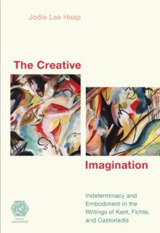
Heap, Jodie Lee. The Creative Imagination: Indeterminacy and Embodiment in the Writings of Kant, Fichte and Castoriadis. Rowman, 2021.
By engaging with the notions of indeterminacy and embodiment within the writings of Immanuel Kant, Johann Fichte and Cornelius Castoriadis, this book addresses and brings to the fore the significance of the creative imagination as an ontological source of human creation. Principally inspired by Castoriadis’ revolutionary elucidation of the imagination and the imaginary, this book actively contributes to this neglected line of enquiry by exposing deep lines of continuity and rupture both within and between the writings of Kant, Fichte, and Castoriadis. More information…
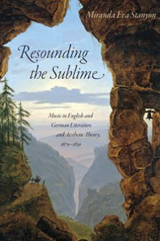
Stanyon, Miranda Eva. Resounding the Sublime: Music in English and German Literature and Aesthetic Theory, 1670-1850. University of Pennsylvania Press, 2021.
What does the sublime sound like? Harmonious, discordant, noisy, rustling, silent? Miranda Eva Stanyon rereads and resounds this crucial aesthetic category in English and German literatures of the long eighteenth century from a musical perspective and shows how sonorous sublimes lay at the heart of a central and transformative discourse. For Enlightenment and Romantic era listeners, the musical sublime represented a sonic encounter of the most extreme kind, one that tested what humans were capable of feeling, imagining, thinking, and therefore becoming. More information…
2020
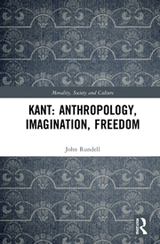
Rundell, John. Kant: Anthropology, Imagination, Freedom. Routledge, 2020.
In a new reading of Immanuel Kant’s work, this book interrogates his notions of the imagination and anthropology, identifying these – rather than the problem of reason – as the two central pivoting orientations of his work. Such an approach allows a more complex understanding of his critical-philosophical program to emerge, which includes his accounts of reason, politics and freedom as well as subjectivity and intersubjectivity, or sociabilities. Examining Kant’s theorisation of the complexity of our phenomenological existence, the author explores his transcendental move that includes reason and understanding whilst emphasising the importance of the faculty of the imagination to undergird both, before moving to consider Kant’s pluralised, transcendental notion of freedom. This outstanding book will appeal to scholars with interests in philosophy, politics, anthropology and sociology, working on questions of imagination, reason, subjectivities and human freedom.
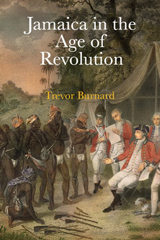
Burnard, Trevor. Jamaica in the Age of Revolution. University of Pennsylvania Press, 2020.
Between the start of the Seven Years’ War in 1756 and the onset of the French Revolution in 1789, Jamaica was the richest and most important colony in British America. White Jamaican slaveowners presided over a highly productive economic system, a precursor to the modern factory in its management of labor, its harvesting of resources, and its scale of capital investment and output. Planters, supported by a dynamic merchant class in Kingston, created a plantation system in which short-term profit maximisation was the main aim. Their slave system worked because the planters who ran it were extremely powerful.
In Jamaica in the Age of Revolution, Trevor Burnard analyses the men and women who gained so much from the labor of enslaved people in Jamaica to expose the ways in which power was wielded in a period when the powerful were unconstrained by custom, law, or, for the most part, public approbation or disapproval. Burnard finds that the unremitting war by the powerful against the poor and powerless, evident in the day-to-day struggles slaves had with masters, is a crucial context for grasping what enslaved people had to endure.
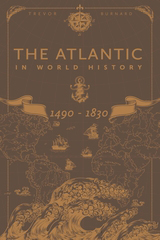
Burnard, Trevor. The Atlantic in World History, 1490-1830. Bloomsbury, 2020.
The Atlantic in World History, 1490-1830 looks at the historical connections between four continents – Africa, Europe, North America and South America – through the lens of Atlantic history. It shows how the Atlantic has been more than just an ocean: it has been an important site of circulation and transmission, allowing exchanges and interchanges which have profoundly shaped the development of the world.
Divided into four thematic sections, Trevor Burnard’s sweeping yet concise narrative covers the period from the voyages of Columbus to the New World in the 1490s through to the end of the Age of Revolutions around 1830. It deals with key topics including the Columbian exchange, Atlantic slavery and abolition, war as a global phenomenon, the Age of Revolution, religious conversion, nation-building, trade and commerce and intellectual movements such as the Enlightenment. Rather than focusing on the ‘rise of the West’, Burnard stresses the interactive nature of encounters between various parts of the world, setting local case studies within his broader interconnected narrative.
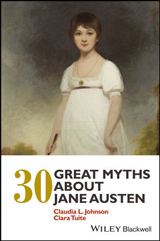
Johnson, Claudia L. and Tuite, Clara. 30 Great Myths about Jane Austen. John Wiley & Sons, 2020.
Was Jane Austen the best-selling novelist of her time? Are all her novels romances? Did they depict the traditional world of the aristocracy? Is Austen’s writing easy to understand? Well into the 21st century, Jane Austen continues to be one of the most compelling novelists in all English literature. Many of her ideas about class, family, history, intimacy, manners, love, desire, and society, have inspired “myths” that are often contradictory – she was a Tory who was also a liberal feminist, or, her novels are at once sharply satirical and unapologetically romantic. Myths, like Austen’s works, are dynamic, changing over time and impacting how we read and interpret literature. 30 Great Myths about Jane Austen examines the accepted beliefs – both true and untrue – that have most influenced our readings of Austen. Rather than simply de-bunking, or validating, commonly-held views about Austen, authors Claudia L. Johnson and Clara Tuite explore how these myths can be used to engage with the life, work, and reception of Jane Austen.
2019
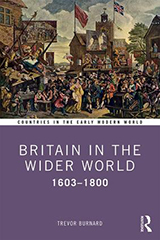
Burnard, Trevor. Britain in the Wider World, 1603-1800. Routledge, 2019.
Britain in the Wider World traces the remarkable transformation of Britain between 1603 and 1800 as it developed into a world power. At the accession of James VI and I to the throne of England in 1603, the kingdoms of England / Wales, Scotland and Ireland were united only by having a monarch in common. They had little presence in the world and were fraught with violence. Two centuries later, the consolidated state of the United Kingdom, established in 1801, was an economic powerhouse and increasingly geopolitically important, with an empire that stretched from the Americas, to Asia and to the Pacific. The book offers a fresh approach to assessing Britain’s evolution, situating Britain within both imperial and Atlantic history, and examining how Britain came together politically and socially throughout the eighteenth century.
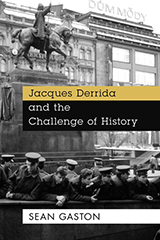
Gaston, Sean. Jacques Derrida and the Challenge of History. Rowman and Littlefield, 2019.
This important new book argues that Jacques Derrida’s work can be treated as the basis for a distinctive historiography. The possibility of seeing Derrida not as a philosopher of language but as a philosopher of history has become more apparent with the recent publication of Derrida’s 1964-1965 seminar Heidegger: The Question of Being and History. We now know that the problem of history was at the heart of Derrida’s writing in the mid-1960s, prior to the publication of his best-known work, Of Grammatology (1967).
Arguing that Derrida’s scholarship in the 1960s and early 1970s on historicism, historicity and the problem of history can be treated as the basis for a philosophy of history, Sean Gaston focuses on Derrida’s work from the mid-1970s to the mid-1990s and his relentless questioning of context, memory and narrative as the delineation of a deconstructive historiography.
2018
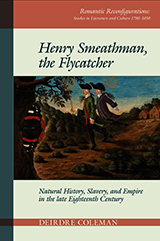
Coleman, Deirdre. Henry Smeathman, the Flycatcher: Natural History, Slavery, and Empire in the Late Eighteenth Century. Liverpool University Press, 2018.
In 1771 Joseph Banks and other wealthy collectors sent a talented, self-taught naturalist to Sierra Leone to collect all things rare and curious, from moths to monkeys. Henry Smeathman’s expedition to the West African coast, which coincided with a steep rise in British slave trading in this area, lasted four years during which time he built a house on the Banana Islands, married into the coast’s ruling dynasties, and managed to negotiate the tricky life of a ‘stranger’ bound to his landlord and local customs. In this book, which draws on a rich and little-known archive of journals and letters, Coleman retraces Smeathman’s life as he shuttled between his home on the Bananas and two key Liverpool trading forts – Bunce Island and the Isles de Los.
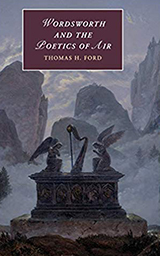
Ford, Thomas H. Wordsworth and the Poetics of Air. Cambridge University Press, 2018.
Before the ideas we now define as Romanticism took hold the word ‘atmosphere’ meant only the physical stuff of air; afterwards, it could mean almost anything, from a historical mood or spirit to the character or style of an artwork. Thomas H. Ford traces this shift of meaning, which he sees as first occurring in the poetry of William Wordsworth. Gradually ‘air’ and ‘atmosphere’ took on the new status of metaphor as Wordsworth and other poets re-imagined poetry as a textual area of aerial communication – conveying the breath of a transitory moment to other times and places via the printed page. Reading Romantic poetry through this ecological and ecocritical lens Ford goes on to ask what the poems of the Romantic period mean for us in a new age of climate change, when the relationship between physical climates and cultural, political and literary atmospheres is once again being transformed.